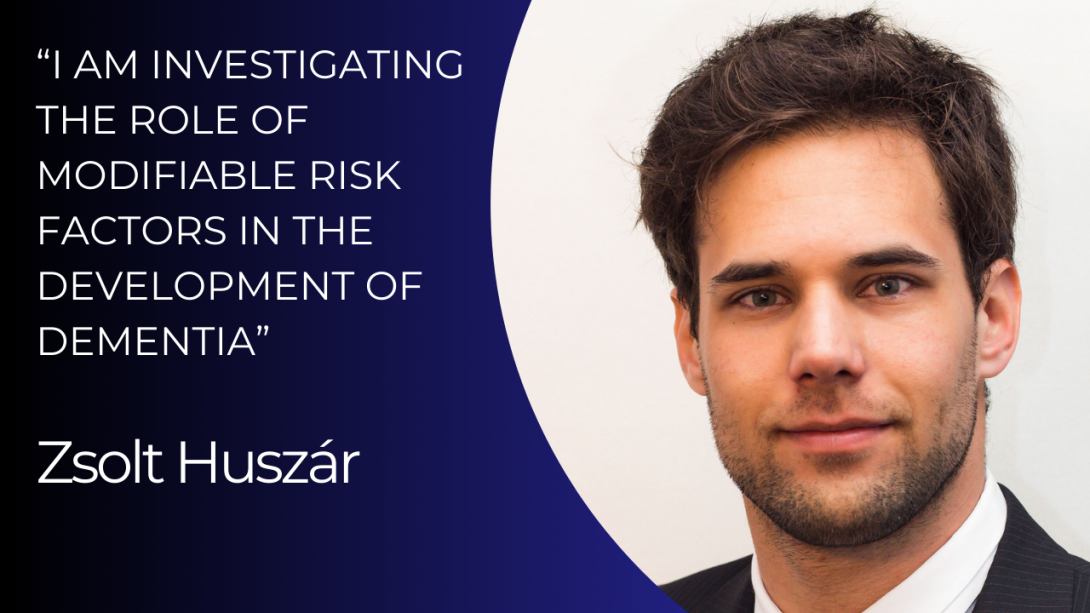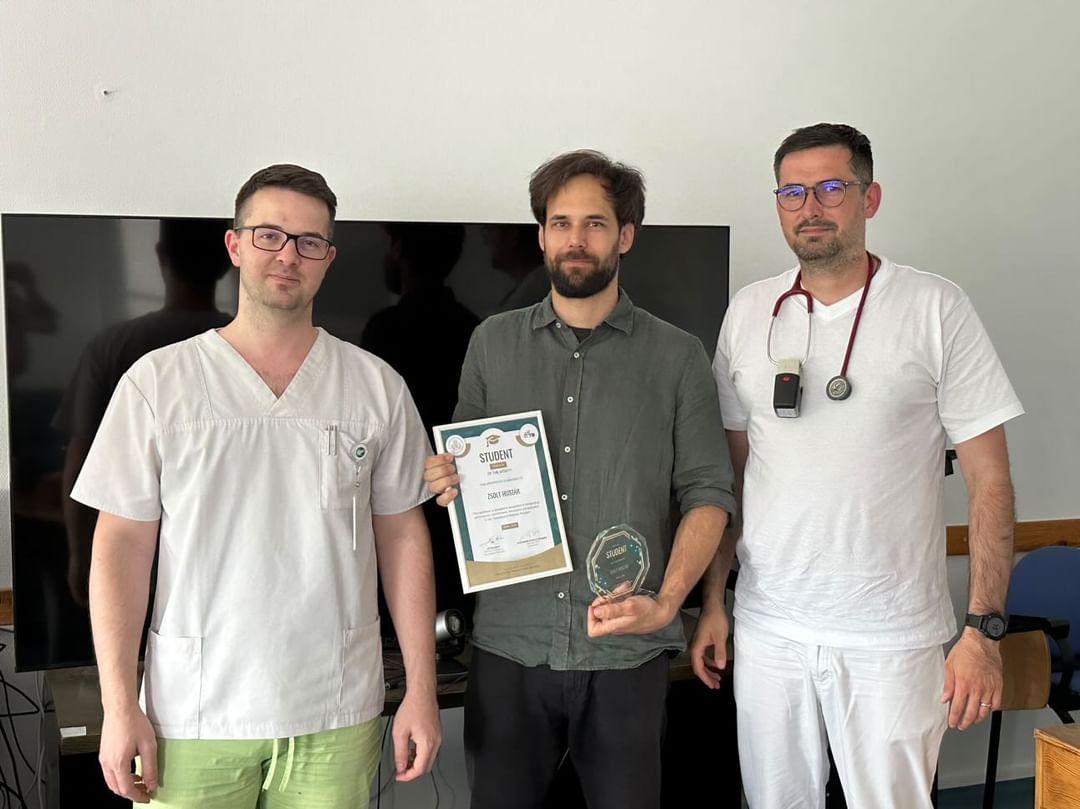
He graduated last year as a psychiatrist, but started researching the risk factors and predicting possibilities of dementia much earlier. The most intriguing question is, if there are signs indicating a high risk of Alzheimer's disease, and how can lifestyle changes reduce the chances of developing the disease. This is something that Dr. Zsolt Huszár, who was named Best Second-Third-Year Ph.D. Student at the Centre for Translational Medicine in April, is trying to clarify.
Zsolt Huszár is a third-year Ph.D. student who focuses on dementia. “This topic was introduced to me by my supervisor, Gábor Csukly, with whom I really wanted to work. I started the Ph.D. program within the CTM system because its structure is well-thought-out and provides the knowledge I need to become a skilled clinician-researcher. I can learn how to prepare a meta-analysis, understand how registers are created, and how clinical research is conducted. I can also acquire basic statistical knowledge here. It was also appealing to me that I could work in a team at CTM, following the principle of learning by doing. I was able to apply this in dementia research.”

Since the therapeutic options for Alzheimer's disease are very limited and not too effective, early detection is crucial in this case. The best thing would be to find people who are at high risk of developing dementia before they show any symptoms. Therefore, Dr. Huszár's research aims to identify people most endangered by dementia. “In our first meta-analysis, we were investigating if the signs of elevated amyloid level in the cerebrospinal fluid or on the computed tomography scan is a prognostic factor of cognitive decline in cognitively unimpaired patients, with or without the presence of hyperphosphorylated tau protein.” In the near future, it may be possible to determine the levels of these proteins from blood tests, without lumbar puncture or PET-CT.
Dr. Huszár is also investigating the role of modifiable risk factors in the development of dementia. It would be essential to clarify, for example, how much the chance of developing dementia can be reduced through lifestyle changes. “With this knowledge, prevention programs could be launched, and decisions could be made about possible pharmacological and non-pharmacological interventions for the high risk population. For them, it would be even more important to pay attention to the cardiovascular system and appropriate management of diabetes. Reducing obesity and recognizing and treating depression would also require increased attention. Smoking is an important risk factor, so quitting would be crucial for those identified with elevated risk. Our research shows that lifestyle changes and harm reduction play a significant role, even when pathological protein changes of amyloid or tau indicate the development of dementia is already present in the brain.”
Dr. Huszár has published one first-authored article on his research so far. This meta-analysis examined the role of elevated amyloid and tau protein levels in predicting dementia. The second study, which examines the role of risk factors in the presence of these proteins, is awaiting publication. This topic has not yet been studied in this context. Dr. Huszár has further research plans, such as assessing the link between depression and dementia.
(Emese Szabó)